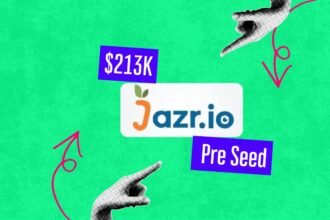Let’s not sugarcoat it, being an entrepreneur in emerging markets isn’t for the faint of heart. It’s not a Hollywood montage of pitch decks, seed rounds, and glamorous founder retreats. It’s grit. It’s hustle. It’s often chaos. And yet, every day, thousands of new startups are launched across regions like Pakistan, Egypt, and Nigeria—many driven by ambition, but not always by readiness.
According to the Global Entrepreneurship Monitor (GEM) 2023/2024 Global Report, entrepreneurial education in most economies continues to be assessed as poor by national entrepreneurship experts.
So let’s unpack it. Who really should take the leap? And who might need to rethink the path before launching their first “Uber for X” or next “edtech disruptor”? This isn’t a prescription—it’s an invitation to zoom out and ask deeper, messier questions.
Opportunity vs. Necessity Entrepreneurs
Not all entrepreneurs are born equal—or equally motivated. In emerging markets, the divide between opportunity and necessity entrepreneurs is sharp.
Opportunity entrepreneurs launch startups because they spot untapped markets or possess a founder-market fit that screams potential. Think of a fintech founder in Karachi who understands informal lending because their family ran a mom-and-pop shop for decades.
Necessity entrepreneurs, on the other hand, often enter the game with fewer choices. Maybe they’ve hit a wall in the job market. Maybe freelancing was unstable. So they start something—anything—to survive.
In fact, the GEM report highlights that in many economies, necessity-driven entrepreneurship remains prevalent, underscoring the need for improved entrepreneurial education and support systems.
That doesn’t make them less worthy, but it does mean the psychological and financial pressures are different.
If you’re stepping into entrepreneurship without a strong “why,” you may find the “how” much harder to figure out.
The Psychological Profile of Founders
So, what’s the ideal psychological makeup of an entrepreneur in emerging markets?
Three words: Resilience. Delusional. Optimism.
Yes, delusional. Because building a startup where infrastructure is fragile, regulation is a moving target, and talent is scarce requires a bit of cognitive dissonance.
According to Startup Genome, about 90% of startups completely fail, and only 1.5% produce a successful exit of $50 million or more across the top eight U.S. startup ecosystems.
But this optimism has to be paired with emotional resilience. Fundraising stalls. Teams quit. Government policy changes overnight. If you crumble with the first no or burn out after two quarters of slow growth, this might not be your battlefield.
This is not about being fearless. It’s about being fearless enough to keep showing up.
The Founder-Market Fit Factor
Here’s a spicy question: Should you build a company in a space you don’t live and breathe? Probably not.
In Silicon Valley, founder-market fit is often a nice-to-have. In emerging markets, it’s oxygen.
If you don’t deeply understand the users you’re serving—or better yet, are one of them—your learning curve will be brutal.
A report by Briter Bridges reveals that African startup investment trends continue to grow, particularly in the financial technology (fintech) space, highlighting the importance of founder-market fit in these sectors.
Take mobility startups in Lahore. You can’t design for users who don’t trust digital payments if you’ve never paid for a rickshaw ride in cash. Your instincts will be off. Your assumptions will betray you.
The best entrepreneurs in emerging markets don’t build from a whiteboard. They build from lived experience.
Myths About Entrepreneurship That Deserve to Die
Let’s bust some myths—because false expectations breed fast disappointment.
Myth #1: “I need to raise money to be legit.”
False. Many resilient businesses in MENA and Pakistan start lean and stay lean for years before even touching VC money. Only 0.2% of startups in the U.S. receive venture capital funding, according to the Kauffman Foundation.
Myth #2: “If I don’t scale fast, I’ve failed.”
Wrong again. Slow growth in high-friction environments can mean you’re building something sustainable. That’s not failure—it’s maturity.
Myth #3: “Entrepreneurship is freedom.”
Ha. Maybe in 10 years. At first, you’re not escaping the 9-5; you’re signing up for the 24/7.
It’s okay to enjoy the hustle. But glamorizing it sets people up for burnout, not brilliance.
Misguided Motivations – Chasing Unicorns or Vanity Metrics
Ask a room full of first-time founders in emerging markets why they started up, and you’ll hear this a lot: “I want to be the next unicorn.” Noble? Maybe. Misguided? Often.
Here’s the problem: unicorn obsession leads to vanity-building—startups that chase growth hacks, raise unsustainable rounds, and burn out before they figure out product-market fit.
In the MENA region, venture capital investments plummeted by over 40% compared to 2023, reflecting a challenging macro-environment.
What if, instead, we aimed for zebras—startups that are profitable, ethical, and grounded in local realities?
It’s okay to dream big. But in markets like Pakistan, dreaming wisely is what will keep you alive.
The Role of Privilege in Entrepreneurship
Let’s talk about the elephant in the co-working space: privilege.
Who gets to be an entrepreneur in emerging markets? Often, it’s people who have a safety net. Maybe they’re from middle- or upper-income families. Maybe they studied abroad or have cousins in Dubai ready to send a wire.
A study by the International Finance Corporation (IFC) shows that access to capital and networks is the top barrier for first-generation entrepreneurs in South Asia.
This doesn’t invalidate their journey, but it does mean the ecosystem isn’t a level playing field.
If we want more inclusive innovation, we need to stop pretending entrepreneurship is accessible to all—and start creating support systems that make it so.
High-Friction Environments Demand High-Conviction Founders
Let’s call it like it is: Pakistan, Egypt, Tunisia, etc., are high-friction startup environments. Payments are clunky. Logistics are broken. Talent pipelines are thin.
But that’s not a bug—it’s a feature. It weeds out the tourists from the lifers.
If you’re not obsessed with your mission, the grind will eat you alive. If you’re not obsessed with your user, your product will never stick. If you’re not okay with ambiguity, you’ll panic when your first pilot crashes.
According to a survey by McKinsey, startups in emerging markets that succeed are those with a clear mission and long-term founder commitment, even in the absence of early monetization.
In other words, if you’re not obsessed—you’re out.
Why This Matters More Than Ever
We’re in a pivotal moment. Young people in emerging markets are waking up to the promise of entrepreneurship. Accelerators are growing. Capital is flowing (cautiously). The world is paying attention.
But we can’t let the noise drown out the nuance. We need founders who think beyond exits. Who build for impact, not just investor decks. Who know that being an entrepreneur in emerging markets is not just about raising rounds—it’s about raising standards.
So the real question isn’t “How do I build a billion-dollar company?”
It’s “Why do I want to build this company—here, now, for these people?”
A Compass, Not a Conclusion
Let’s be clear: this isn’t a takedown of startup dreams. It’s a love letter to better ones.
If you’re reading this and feeling doubt—that’s good. Doubt is a compass. Maybe you’re not ready yet. Or maybe you’re the exact person these markets need, but your model needs a pivot, not your ambition.
The beauty of entrepreneurship in emerging markets is that it’s wide open for reinvention. The question is: what kind of founder do you want to be?




